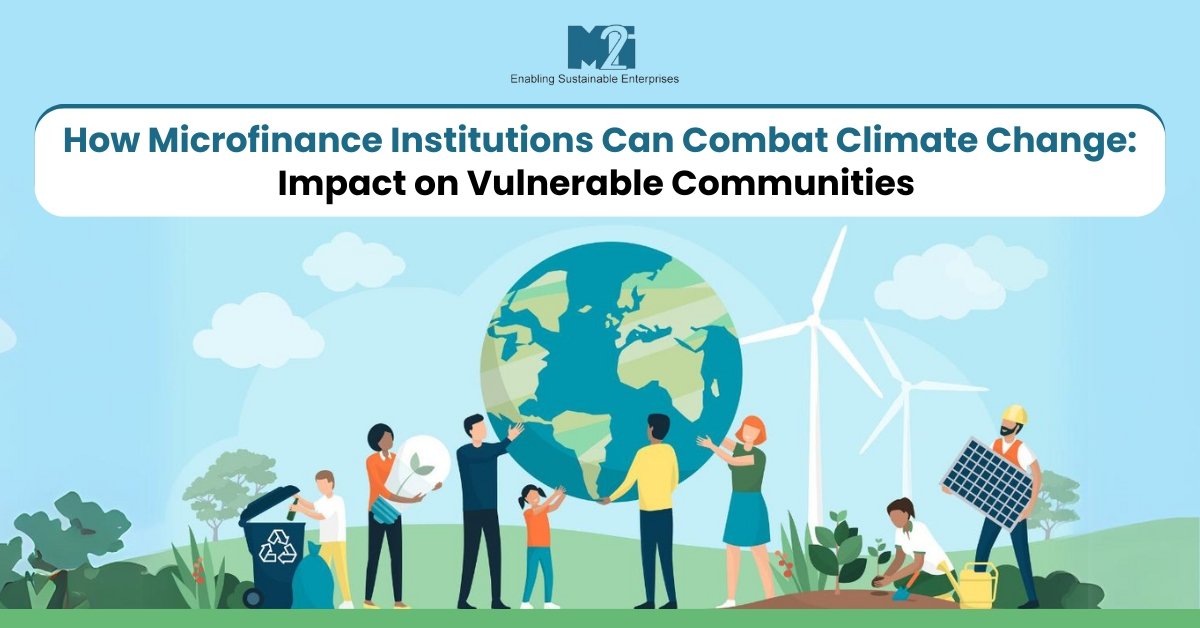
How Microfinance Institutions Can Combat Climate Change Impact on Vulnerable Communities
Climate change poses a significant threat to low-income communities worldwide, affecting livelihoods, housing, and food security. Microfinance institutions (MFIs), which traditionally support these communities, are uniquely positioned to mitigate these impacts through innovative financial solutions.
Impact of Climate Change on Microfinance Clients: Many clients of MFIs are engaged in sectors like agriculture, which is highly susceptible to climate variations. Erratic weather patterns, such as increased frequency of droughts and floods, directly threaten agricultural productivity and food security. Similarly, small-scale artisans and traders face disruptions in their business operations due to severe weather events. These changes not only affect current economic stability but also threaten long-term livelihood sustainability for these vulnerable groups.
Contributions of MFIs in Addressing Climate Change
-
Green Financing: MFIs can offer specialized loans for purchasing renewable energy solutions like solar panels or for investing in sustainable agricultural practices. Such financial products help reduce the environmental impact and promote sustainability.
-
Building Climate Resilience: Through targeted loans and grants, MFIs can enable communities to invest in climate-resilient infrastructure. This includes the construction of homes that can withstand extreme weather and the adoption of agricultural techniques suited to changing climate conditions.
-
Educational Programs: By providing education on environmental management and sustainability, MFIs can empower their clients to make informed decisions that contribute to long-term environmental health. This knowledge helps communities better understand and adapt to the effects of climate change.
-
Incentivizing Sustainability: By introducing lower interest rates for eco-friendly projects or offering insurance products that cover climate-related risks, MFIs can encourage clients to adopt more sustainable practices.
-
Partnerships: Collaborating with environmental NGOs and other organizations can amplify the impact of MFIs in combating climate change. These partnerships can provide the technical knowledge and additional resources needed to implement effective climate solutions.
By focusing on these strategic areas, MFIs not only help protect the environment but also enhance the resilience of their clients against the adverse effects of climate change. This proactive approach is crucial for ensuring the sustainability of both the environment and the communities that depend on it.